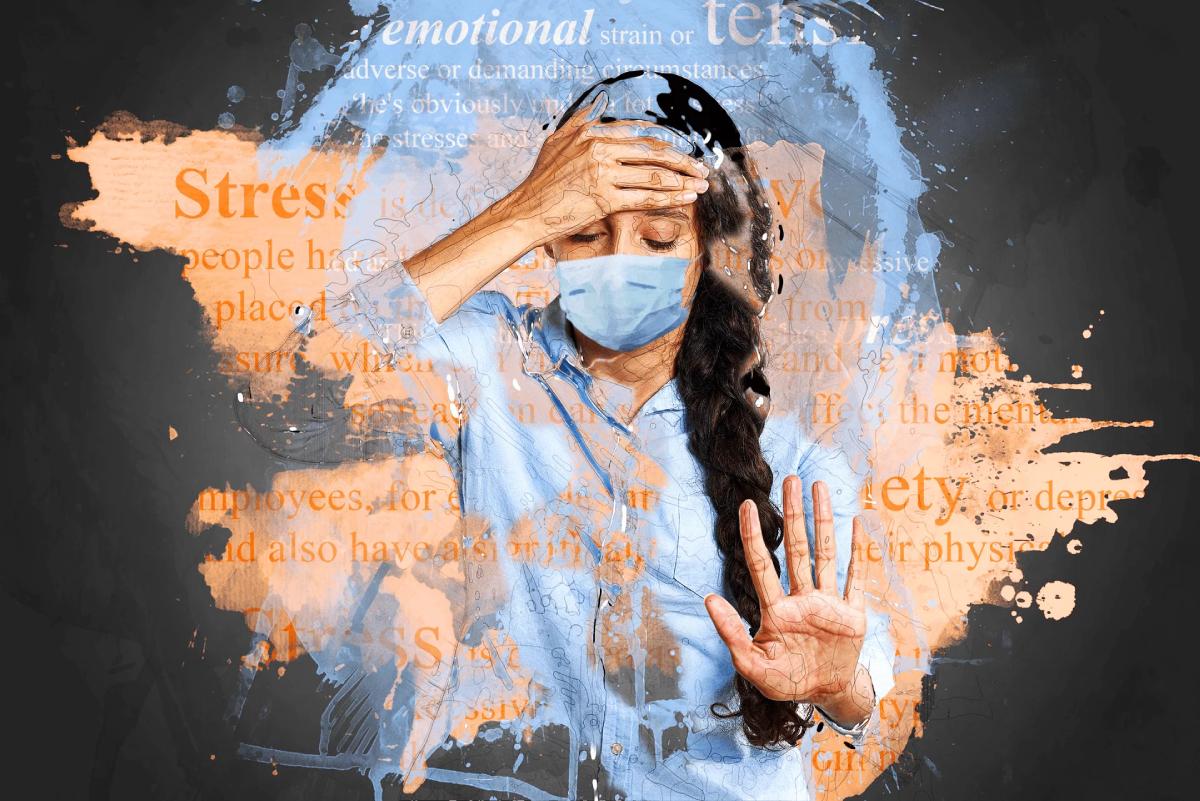
COVID asymptomatic patients can suffer from lasting health issues like Long-COVID, cardiovascular disease, brain and lung impairment. Despite not showing any symptoms of the disease, asymptomatic patients have high levels of antibodies similar to symptomatic patients.
“These patterns of immune dysregulation could be underlying the different types of persistent symptoms we see in people who go on to develop Long-Covid,” said Dr. Justyna Fert-Bober, a research scientist in the Department of Cardiology at the Smidt Heart Institute in one of her studies.
In another study of 30 million COVID-19 patients, 40.5% were asymptomatic, making it harder to curb its spread.
“The high percentage of asymptomatic infections from this study highlights the potential transmission risk of asymptomatic infections in communities,” wrote the authors of the study.
Risks of underestimating a COVID asymptomatic infection
The COVID-19 virus has developed different mutations. While immediate adverse effects from COVID-19 may not be evident, there remains a high risk of long-term impacts.
With that said, testing becomes even more vital, especially with more than half of people infected suffering from Long-COVID.
Also known as ‘Post COVID-19 Syndrome’, Long-COVID is defined by the CDC as a wide range of new, recurring, or ongoing health problems experienced weeks or months after infection with the virus.
One study published in The Lancet Psychiatry reports that there is a risk of encountering neurological and psychiatric illnesses years after a COVID-19 infection.
“Cases of anxiety, mood disorder, and insomnia decreased for people who suffered from COVID-19. On the other hand, cases of brain fog, dementia, psychotic disorders, and seizures can remain as high two years later,” said Maxime Taquet, one of the authors of the study.
Another trend that’s caught the attention of health experts is ‘rebound’ COVID – a condition where patients test positive for COVID again just a few days after testing negative following their initial bout with the respiratory infection. One most famous case was US President Joe Biden’s recent experience.
It’s been reported that at least one cause of this phenomenon is Paxlovid – an antiviral medicine developed by Pfizer that’s engineered to stop COVID-19 from spreading in the body.
However, executives at Pfizer argue that reports of a recurring COVID-19 infection after taking Paxlovid are still rare, approximately only one to two percent.
When should you get tested?
There are two main types of tests to detect COVID-19; A molecular test and an antigen test.
A molecular test, or (RT-PCR test) is the most accurate and efficient of the three. It can detect every kind of COVID-19 variant and results are expected within a day. It’s safe for anyone above 2 years old and you can even have it shipped to your desired location.
An antigen test is a more affordable, faster way to detect if you have COVID-19. You can expect results in minutes, however, the results are not always accurate.
There are flaws with antigen home testing, even if you follow all the instructions provided. It’s mostly because of the lack of involvement from medical professionals. At-home PCR tests still provide accurate results because they are then thoroughly analyzed in a lab.
The problem is that so many people only get tested when they experience symptoms. Testing should be done for a number of reasons, especially with asymptomatic cases expected in four out of ten people.
As a general rule of thumb, it’s good practice to get tested when:
- You have COVID-like symptoms
- Someone you know tested positive for COVID-19
- You live with or plan to visit someone who’s been immunocompromised
- Have plans to attend a large event (indoor and outdoor)
Even following a negative COVID-19 antigen test, the FDA still recommends repeat or serial testing for any at-home antigen test. This is to reduce the risks of false negative results and prevent the unintentional spread of COVID-19 to others.
The FDA suggests conducting up to three COVID-19 tests, each 48 hours apart. Should you test negative two straight times but have COVID symptoms, it’s best to contact your healthcare provider.
Importance of getting tested for COVID-19
In the event that you experience symptoms and test positive for COVID-19, don’t panic, especially if you’re vaccinated. Knowing you have the virus is important for the following reasons:
Protect others
If you test positive for COVID-19, you must help curb the spread of the disease. Inform people you’ve been in close contact with to take a COVID-19 test. Begin isolation immediately. CDC recommends at least five days of isolation, only ending once you show no signs of fever.
If you are not absolutely certain that you are not infected, avoid close contact with anyone who may be immunocompromised. This includes the elderly, chemotherapy patients, expecting mothers, newborn infants, anyone who has just undergone surgery and others.
Recognize potential health risks in oneself
The long-term effects of a COVID-19 infection will vary on a case-to-case basis. You must continue to monitor your health even after your initial bout with the respiratory disease.
Make sure to do the following:
- Gradually increase the level of intensity of your exercises to avoid over-burdening your heart
- Monitor symptoms for diabetes (reports show people who survive COVID face a higher likelihood of being diagnosed with the disorder in the weeks and months following infection)
- Get vaccinated (fully vaccinated individuals may be less likely to get Long-COVID)
- Live a healthier lifestyle (CDC reports obesity can worsen COVID-19 outcomes)
Final thoughts
Individuals with a COVID asymptomatic infection are still at risk for severe health consequences. The lack of medical attention and risk prevention puts them in more jeopardy of developing a range of sudden and long-term health issues.
With the latest COVID sub-variants becoming more adept at evading immunity, testing for COVID-19 is a must. If you’re experiencing any of its symptoms, came in close contact with someone who had the virus, or plan to visit someone who’s immunocompromised, get tested immediately.
There are plenty of COVID-19 testing options available for you. You can have one delivered straight to your home.
If you’re in NYC, you can have it delivered through Uber or you can schedule an in-person lab test.







